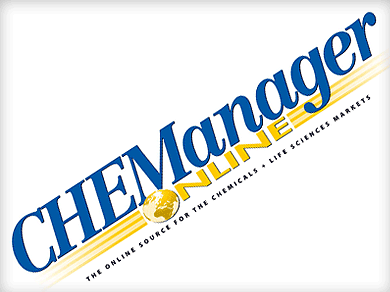CHEManager publishes the latest news and trends from the chemical industry. ChemistryViews is pleased to present this selection of the articles published this month in CHEManager Europe:
Interview: The EFCG is Pushing Its Agenda Forward During Complex Times
Tony Scott credits Hovione CEO Guy Villax with coining the phrase, “saints and sinners” when referring to the notoriously uneven playing field in the world of API and excipient manufacture at the launch of EFCG during CPhI in Brussels in 2004. The EFCG has become a household name over the last six years when it comes to pushing for better regulation of APIs and excipients. Brandi Schuster recently talked to EFCG Pharmaceuticals Business Committee chair Roger LaForce and Scott about a whole host of EFCG issues – and what sets their member companies apart from the “sinners.”
Interview: SOCMA Gives Smaller Chemical Companies a Voice
The Society of Chemical Manufacturers and Affiliates — better known as simply SOCMA — is now celebrating its 90th year representing the interests of the batch, custom and specialty chemicals manufacturing industry. “The needs of the batch industry are very different than those of the commodity chemical companies,” said SOCMA President and CEO Lawrence D. Sloan. “That is why we really strive to provide a unique service to smaller-sized chemical companies.” Brandi Schuster spoke to him about the organization’s current “front-burner” issues for its 200-plus member companies and its three strategic directions.
Markets & Companies: Localization a Key Success Factor for Doing Business in China
When looking at China, the competition between domestic companies and multinationals has so far largely been one between cost and customer relationship advantages on the side of the domestic players, and advantages with regard to quality and product portfolio on the side of the multinationals.
Chemicals: Triggering Change in Chemical Manufacturing
The decision for process change in chemical manufacturing can have many different reasons, but in any case, they are based on the observation that that the existing devolution is no longer in line with the need to reach manufacturing excellence. Circumstances caused by externally triggered developments may show the evidence of necessity of change.




